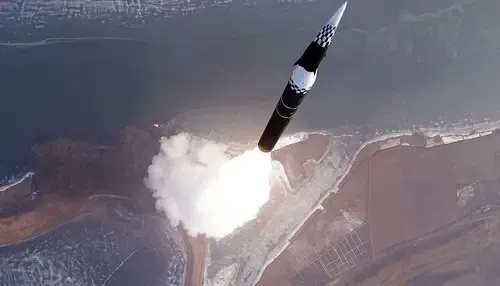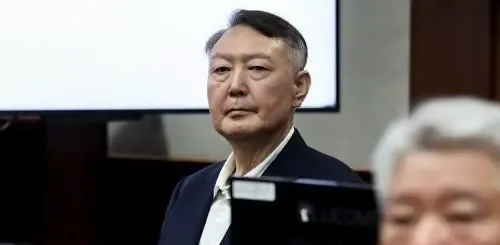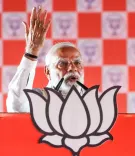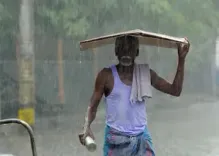Ukraine Suspends Russian Gas Transit, Triggering Supply and Price Alarm
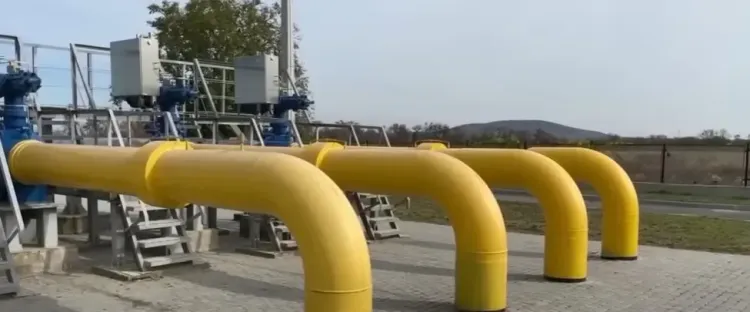
Valletta, Jan 2 (NationPress) The suspension of Russian gas transit via Ukraine has ignited concerns regarding potential supply shortages and escalating energy prices, notably affecting landlocked European countries like Slovakia.
On Wednesday, both Ukraine and Russia declared the cessation, prompting several EU nations to seek more expensive energy alternatives, as reported by Xinhua news agency.
Slovak Prime Minister Robert Fico remarked that the stoppage of gas transit through Ukraine will have "serious repercussions" for all in the European Union (EU), but will not adversely affect Russia.
This decision follows Ukraine's choice not to extend a 2019 gas transit agreement with its state-run Naftogaz and Russia's Gazprom, which expired on December 31, 2024.
"At 07:00 a.m. (0500 GMT), in the interest of national security, the transit of Russian natural gas through Ukraine was halted," stated the Ukrainian Energy Ministry on Wednesday. Gazprom also confirmed the suspension, attributing it to the expiration of critical agreements and Ukraine's unwillingness to renew them.
In a communication to the European Commission (EC) on Sunday, Fico criticized Ukraine's gas transit suspension as irrational and warned that it would escalate tensions and impact the EU more severely than Russia. He suggested that his government might contemplate measures such as reducing electricity supplies to Ukraine.
Slovakia, which heavily depends on Russian gas, is among the most affected nations. The country imported around 3 billion cubic metres of gas from Russia via Ukraine annually, meeting two-thirds of its demand.
Despite the concerns, the EC has sought to reassure, with a spokesperson asserting that the European gas infrastructure is "sufficiently flexible" to supply non-Russian gas to central and eastern Europe through alternative pathways, bolstered by significant new liquefied natural gas (LNG) import capabilities since 2022.
Mark Cigoj, editor-in-chief of the Croatian weekly 7 Dnevno, highlighted that Slovakia, Austria, and Hungary are particularly exposed due to their dependence on Russian gas and their limited access to LNG imports.
Slovakia's Regulatory Authority for Network Industries, the national energy regulator, has predicted household gas prices could surge by 15-34 percent in 2025 without governmental energy support.
To mitigate the impact, the Slovak government has allocated around 235 million euros ($244 million) for energy assistance, further straining the country's budget.
SPP, Slovakia's state-owned gas utility, assured continued supply on Wednesday but acknowledged the rise in costs associated with alternative sources.
Moldova, which imports about 2 billion cubic metres of gas annually from Russia via Ukraine, enacted measures on Wednesday to reduce electricity consumption by at least 30 percent.
These measures include curtailing street lighting, disabling escalators in various public and commercial structures, and adjusting working hours in high-energy-consuming sectors.
In 2023, around 15 billion cubic metres of Russian gas traversed Ukraine to Europe, accounting for approximately 5 percent of Europe’s total needs. Following the halt in Ukrainian transit, the TurkStream pipeline under the Black Sea remains the only path for transporting Russian gas to Europe.
According to the EC, the proportion of Russia's pipeline gas in EU imports has plummeted from over 40 percent in 2021 to about 8 percent in 2023.
Nonetheless, Cigoj stressed the necessity for the EU to devise a cohesive plan for coordinating gas purchases among member states, cautioning that higher margins and transportation costs will lead to increased gas prices, further exacerbating inflation.
While numerous European nations have significantly reduced their reliance on Russian gas since the onset of the Russia-Ukraine conflict, countries like Slovakia, Hungary, and Austria continue to depend on it.
Slovak Vice Premier and Economy Minister Denisa Sakova stated on Tuesday that Slovakia is technically well-prepared for the gas supply stoppage, possessing adequate gas reserves and alternative supplies for 2025.
However, she warned of potential difficulties if the situation extends into the winter heating season next year.
Clearly, European nations will need to organize themselves to procure much more expensive gas from alternative sources in the coming times, Cigoj remarked.
Markus Krug, deputy head of the gas department at Austria's energy regulator E-Control, indicated that Russian gas might still flow through Turkey, supplying Hungary. He estimated that Slovakia's gas supply could mainly derive from Hungary, with the remainder sourced from Austria, the Czech Republic, and Poland.
The TurkStream gas pipeline, boasting an annual capacity of 31.5 billion cubic metres, has a limited ability to accommodate increased demand. To compensate for the shortfall, the EU will need to rely more on LNG imports, which come at a significantly higher cost.

